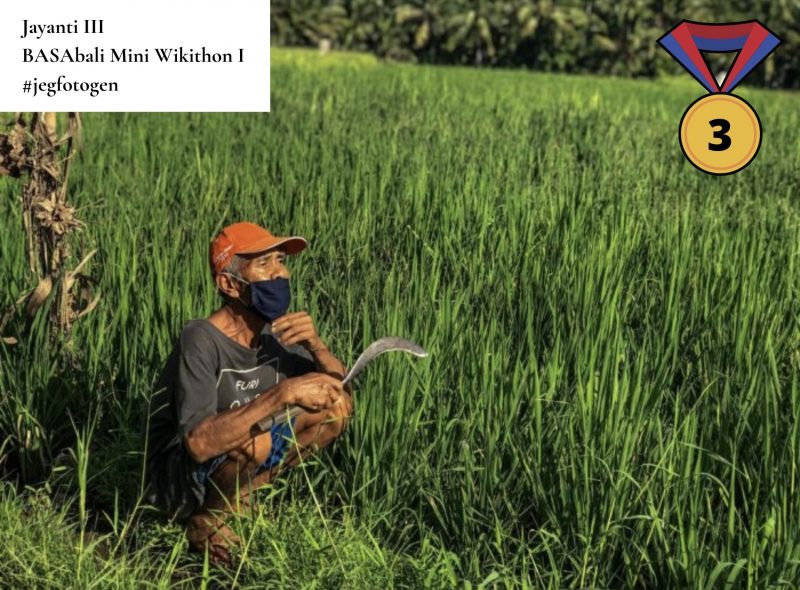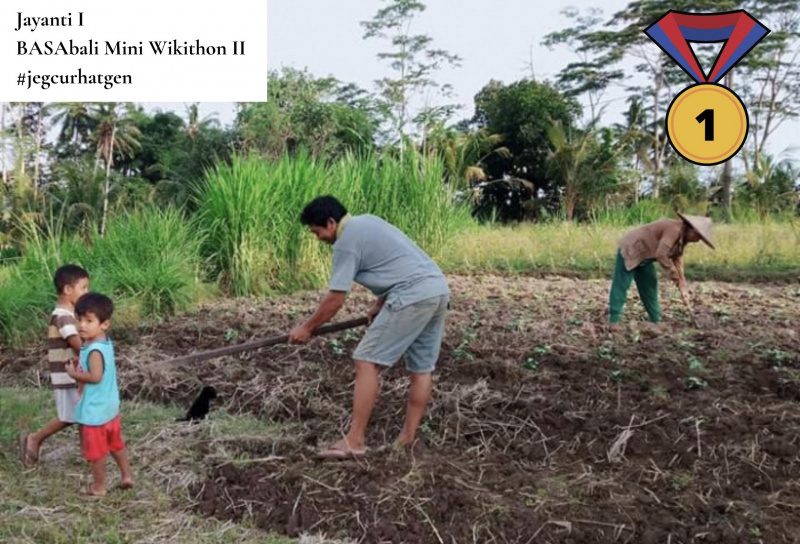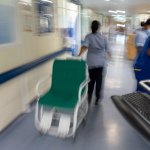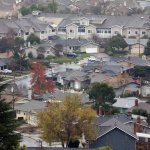A seller in a Bali market. Photo by I Komang Arsa Saguna / BASAbali Wiki. Used with permission.
Bali, Indonesia’s top tourism island destination, will open its borders to domestic visitors on July 31. Officials are hoping the island’s opening will slowly revive the tourism sector which was gravely affected by the COVID-19 pandemic.
Bali’s experience in easing restrictions will guide the decision of authorities if Indonesia will once again welcome foreign tourists in September.
As of July 30, Indonesia has recorded 106,336 COVID-19 cases and 5,058 deaths caused by the virus. COVID-19 cases are active in all of the country’s 34 provinces. Bali’s COVID-19 cases have doubled since the start of July. As of July 27, it reported 3,219 cases in the whole province.
The island, which largely depends on tourism, was suddenly put under lockdown in April. This has disrupted the local economy and displaced thousands of workers. How did residents survive in the past three months?
A wikithon organized by BASAbali Wiki urged Balinese participants to describe the impact of COVID-19 in their communities.
BASAbali Wiki is a digital platform promoting the Balinese language—one of Indonesia’s 707 languages. Based on the 2011 census, there are almost two million people who speak Balinese in Bali province which has a population of around four million.
One of the platform’s initiatives is a wikithon which aims to add more words and sentences to the BASAbali Wiki cultural dictionary. This year’s theme is about the social impact of COVID-19:
Covid-19 mini-wikithons provide a safe space for people to talk in their native Balinese language about their challenges and coping strategies of the pandemic in Balinese communities.
The top three photo and essay submissions were selected and translated into English and Indonesian languages.
The photo (see photo at the top of this article) and caption submitted by I Komang Arsa Saguna was recognized as the winner in the “Just Photo It” competition. The entry depicts how traders in local markets were affected by the pandemic. Here’s an excerpt of the translated caption:
In Bali, the COVID-19 outbreak has been plaguing us since March. When the outbreak hit Bali, many economic sectors were affected by the virus, ranging from the upper-middle to lower-middle economy. There is an appeal from the government to avoid this virus by working from home, compound or griya (large residence consisting of multiple courtyards). People who have jobs selling in the market find it difficult to sell.
Traders who sell at the market cannot carry out their work because fewer and fewer people shop at the market. Likewise, traders who sell in the market are afraid of the coronavirus, and this causes many traders not to sell in the market, though there are still some traders who do.
Although many small traders have received basic food assistance from the government, the assistance wasn’t enough, which caused small traders to continue to sell, disobeying the government’s call to avoid the danger of the coronavirus.

An elderly man wearing a face mask while tending to his farm. Photo by I Wayan Kuntara / BASAbali Wiki. Used with permission.
Meanwhile, the photo by I Wayan Kuntara won the third prize. It shows the vulnerability of the elderly in rural places. Here’s an excerpt of the translated caption:
The most susceptible to COVID-19 is usually an elderly person. Such a warning has an impact on the elderly in rural areas where they spend the majority of the day farming in the fields. It feels very tight working in the fields using a mask.
Under the “Just Confide It” category of the wikithon, participants were asked to write essays about how they coped with the disrupting impact of the pandemic.
Writing from Yogyakarta, university student I Kadek Surya Jayadi documented some of the scenes at the community market. Here’s a translated excerpt of the essay:
It’s sad to see pedicab drivers who do not get passengers; I’m sad to see a newspaper deliveryman with no buyers; the kencur rice was also not sold. I can tell a lot more. Unlike most of the trading, herbal medicines sellers selling ginger, turmeric, and sere are suddenly crowded with buyers. Since the world has been hit by a pandemic, all kinds of herbal medicine sellers are busy with buyers. I also went along to buy herbal medicine at the market since there was an outbreak of Covid-19.

A family turned to farming to survive the pandemic. Photo by Made Sinar / BASABali Wiki. Used with permission.
The top essay was written by Made Sinar who gave a moving testimony about their family’s decision to turn into farming to survive the pandemic. Here’s a translated excerpt of her essay:
My husband is also very diligent in working. Corn and sweet potatoes, which we planted every day, are now ready to be harvested. Every day my family eats corn and sweet potatoes. Sometimes we eat yam rice, sometimes steamed, sometimes also fried, which is important to stop the stomach from growling. There are vegetables also so that there is also income. I sell sweet potato chips. I make them. My eldest son is also diligent in helping, and my husband is in charge of taking him to the stalls. God still gives grace, even though we only sell sweet potato chips, and sometimes corn and vegetables, my family never goes hungry.











